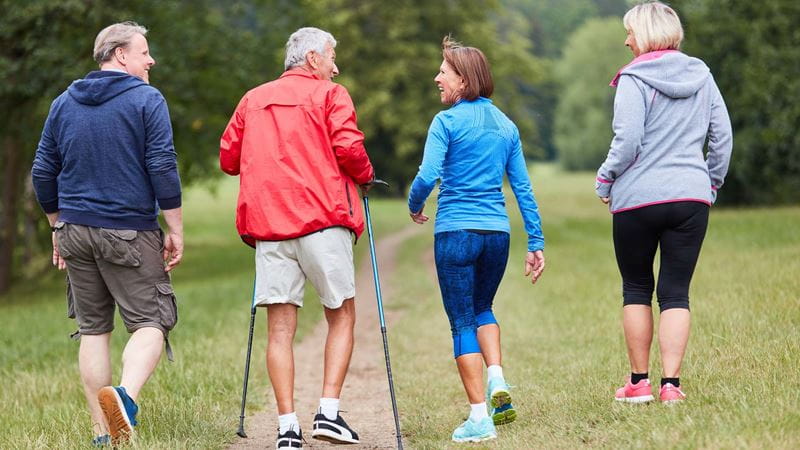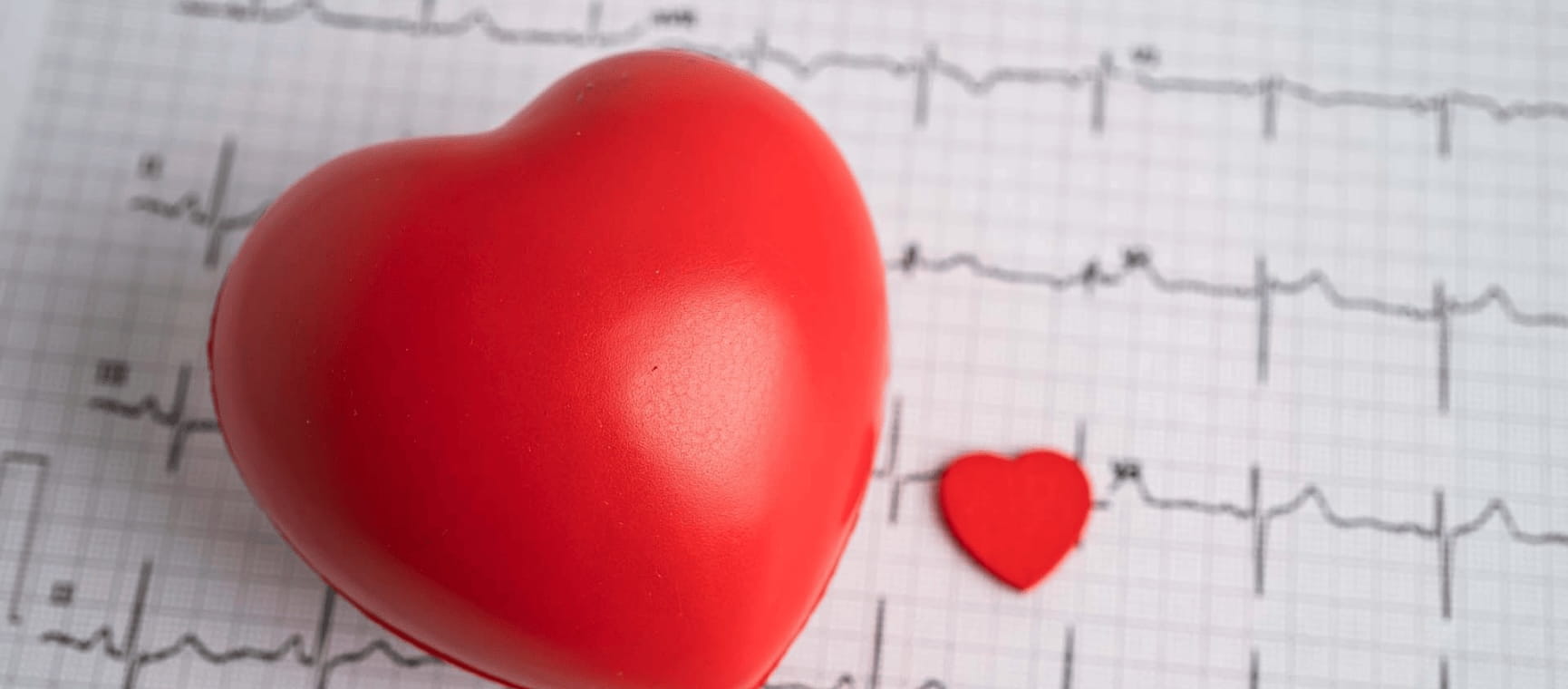
Diabetes has become a hidden epidemic in the UK, with more than 5.8 million people reckoned to be living with the condition.
Out of them, around 90% have type 2 diabetes, which is linked to lifestyle factors including being overweight or sedentary. Not every case is caused by these, but according to Diabetes.co.uk, losing excess pounds is the best thing you can do to reduce your risk.
Even small lifestyle changes can make a big difference, so we've got the lowdown from TV science expert Dr Michael Mosley on how to prevent and reverse this increasingly common condition.
What's the difference between type 1 and type 2 diabetes?
Type 2 is the most common form of diabetes, where blood sugar levels rise because the body doesn't produce enough insulin or cells don't react to it properly.
This is the variation that's linked to lifestyle factors, whereas type 1 diabetes happens because the body's immune system attacks the cells that make insulin. Type 1 cannot be reversed by making changes to diet or exercise levels.
Health complications from both forms of diabetes can include blindness, kidney failure, heart attacks, stroke and lower limb amputation.
But research has shown that you can reduce your risk of developing type 2 diabetes, and even reverse it, with some simple lifestyle changes.
If you have been diagnosed with type 2 diabetes, it’s important to talk to your GP or healthcare professional for advice. You may need medication or specialist dietary advice. The NHS also offers courses to help you manage your diabetes.
Weight loss lowers blood sugar levels
Dr Mosley explains that losing fat from our bodies lowers blood sugar levels. He tells Saga that the liver and pancreas – organs that are key in controlling glucose levels – benefit from weight loss.
“With type 2 diabetes, it’s increasingly clear that in the majority of cases it’s caused by a build-up of too much fat in your liver and pancreas,” he says.
Professor Roy Taylor at Newcastle University has demonstrated that the build-up of fat clogs up those organs and stops them working properly, leading to type 2 diabetes.

Dr Mosley first met Professor Taylor in 2014, after he had successfully put his own type 2 diabetes into remission by losing 10kg (1 stone 8lbs).
“I went to see him because I wanted to know why it had reversed," Mosley explains. "He said that in order to reverse type 2 diabetes, you just need to lose about 1g (0.04oz) of fat from your pancreas, and to do that you’re going to need to lose about 10% of your body weight.”
Restrict your calories to transform your health
Dr Mosley is the creator of The Fast 800 diet, a rapid weight-loss approach using meal replacements and a diet rich in protein and healthy fats.
It involves eating around 800-900 calories (kcal) a day for up to 12 weeks. While this is undoubtedly restrictive and takes real commitment, the benefits – such as being able to stop diabetes medication – are potentially life-changing.

Dr Mosley recommends speaking to your doctor before embarking on any form of rapid weight-loss programme.
He says, “The evidence is very clear that rapid weight loss is effective. A lot of doctors are really well-informed about it, so if you have type 2 diabetes, it's worth talking to them.
"Essentially, the sooner you can get on with it, the better. If you have pre-diabetes, that’s a particularly good time to act, before it develops.”
Dr Mosley's diet is similar to the NHS rapid weight-loss diet; in Scotland, a similar scheme is available from Counterweight.
Slow and steady may be better for you
Rapid weight loss can be beneficial for type 2 diabetes, but it’s important to adopt healthy eating habits that are sustainable in the long term.
Many rapid weight-loss programmes use shakes, but Dr Mosley stresses that in the long term, learning to cook nutritious meals is what’s needed to build a habit that lasts.
“If you learn how to cook and prepare these sorts of meals while you’re on 800-900 kcal, it translates over," he explains. "When you stop the rapid weight-loss phase, you already have those skills. The danger otherwise is that you'll just go back to your old habits.”

Rapid weight loss may not be for you, and instead you may need to combat diabetes with a slower and steadier approach.
Dr Mosley adds: "With diabetes, people can be medically vulnerable. So, it’s OK if you’re on metformin, for example, but not if you’re on insulin. You need to do it carefully.”
The super-tasty diet that's the healthiest in the world
Dr Mosley uses the Mediterranean diet in his eating plans.
It is not a restrictive food plan, but a broad way of eating. It focuses on consuming plenty of fruit and vegetables, legumes (like chickpeas and lentils), whole grains, nuts and seeds, and healthy fats like olive oil and fish.
Studies have found that it can be good for your health and particularly beneficial for reducing your risk of heart disease.
Dr Mosley says: “It’s terrific for anxiety, depression, heart disease – you name it. It’s regularly voted as the healthiest way of eating on the planet. It’s also sustainable, easy to make meals, and super-tasty."

“It’s also not costly. People assume that diets are expensive, but the Mediterranean diet doesn’t have to be. My wife (GP Dr Clare Bailey) makes recipes that are affordable. You can use frozen food, canned food.
"Things like lentils and legumes are really cheap. You just have to know how to prepare them, and a lot of people have forgotten that.”
Try a timed approach
Dr Mosley is also an advocate of intermittent fasting. Most followers either restrict their calories by days (for example, five days restricted and two days relaxed) or by limiting the hours within which they eat.
Dr Mosley says it's all about what works best for you.
“If you’re eating, say, 800 to 1,000 calories a day, after a time it’s going to mess with your social life," he point out.
"So, you can slow it down. Maybe just do it during the week; then, at the weekend, you can be more generous with your calories. Or maybe you do four days low-calorie, or even three.”

Time-restricted eating is a complimentary approach that can also benefit gut health by giving your body a rest from having to digest food.
“You try and restrict the hours within which you eat,” Dr Mosley says. “For example, 16:8 (8 hours eating, 16 hours fasting) or 14:10. I think 14:10 is a more sustainable approach. So, you finish eating at 8pm, and you don’t eat again until 10am.
“Intermittent fasting can also have other benefits, such as better sleep, lower blood pressure and improved insulin levels.”
Get moving to keep diabetes at bay
Countless studies have found that getting more active can protect against and even reverse diabetes. The NHS in England offers a nine-month physical activity programme for people at risk of developing diabetes.



Facial weakness, a sudden headache and dizziness can all be signs of a stroke, we've got the facts from an expert.

Knee pain is more common as we age: to help we've got the best advice from 3 leading experts with easy ways to make a difference.

Do you know the symptoms of a heart attack? Here’s what to look out for, and how to prevent one.

Front, back or side? Which sleeping position is best for you as you get older, and which ones you should avoid


